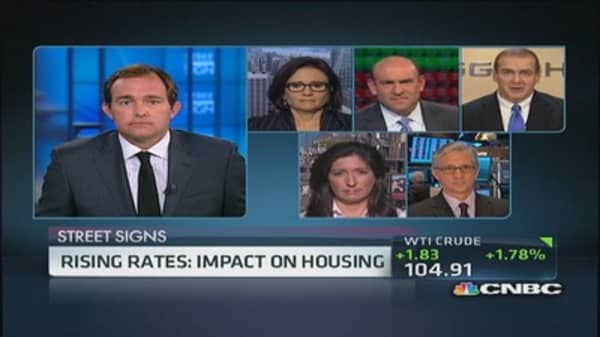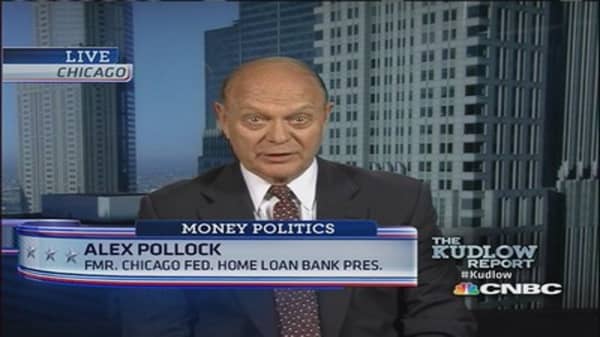The president praised a bipartisan Senate effort to replace Fannie and Freddie with a system that would charge lenders for explicit government guarantees of some mortgage loans. And while there is a risk that the cost of borrowing would increase, Mr. Obama also said that he wanted to preserve the wide availability of the 30-year, fixed-rate loans that are preferred by most Americans.
House Republicans are proposing a sharper retreat, preserving only the government's support for lending to lower-income families. Proponents say it, too, would preserve the availability of 30-year fixed-rate loans, though they are not widely available in countries without government-backed systems.
More from The New York Times:
Obama Outlines Plans for Fannie Mae and Freddie Mac
Bezos Brings Promise of Innovation to Washington Post
GovernmentSues Bank of America Over Mortgage Securities
"Washington has suddenly come alive on housing finance reform," said David Stevens, president of the Mortgage Bankers Association, who headed the Federal Housing Administration during Mr. Obama's first term. "We saw nothing substantive prior to this year, but now we're in a housing recovery and the odds have clearly improved given that both the House and Senate have weighed in."
For all the talk, however, it will be difficult to alter the government's role in housing finance, which has remained substantially unchanged for half a century — notwithstanding Fannie and Freddie's move from informal to formal wards of the state. That is because Americans like cheap mortgage loans and it is hard to preserve the benefits without the costs of the current system.
Fannie, Freddie and the Federal Housing Administration backed 87 percent of new mortgage loans over the last five years, the same share they backed in 2012, according to estimates by Inside Mortgage Finance, a trade publication. In the years before the crisis, less than 40 percent of the market was government-backed.
The government's heavy hand is holding down interest rates, helping the housing market and the broader economy to recover. The average rate on a 30-year loan was 4.37 percent in July, according to Freddie Mac, a full percentage point above rates earlier in the year, but still very low by historical standards.
(Read more: Home builders boost prices amid rising rates)
There is growing concern, however, that the government's risk aversion and the absence of private competition are suppressing the availability of loans. The average credit score for borrowers whose loans were bought by Freddie Mac rose to 756 in 2012 from 720 in 2006, according to its securities filings.
"Every few days somebody comes in who in my mind should be able to get a mortgage loan, and I have to turn them away," said Louis Barnes, a mortgage lender with the Premier Mortgage Group in Boulder, Colo. "It's like trying to push ice cream out of the wrong end of the ice cream cone."
Mortgage companies, backed by some federal officials, say Fannie and Freddie are being too aggressive in pursuing refunds from lenders when borrowers default, leading lenders to reject applicants they deem even mildly risky.
Other critics of Fannie and Freddie make the opposite point, that government support for housing, by making mortgage loans more affordable, is distorting the economy. The government, they say, is subsidizing homeownership, with much of the benefit flowing to affluent Americans, at the expense of biomedical research or bridge repairs.





